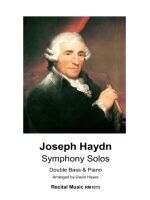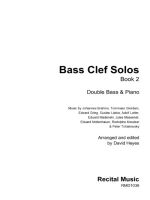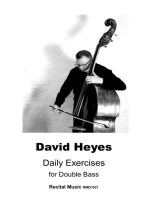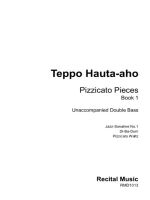Tarantella

Double Bass & Piano
Composer: Eduard Madenski
Product code:
RMD1423
Publisher: Recital Music
£10.00
Description
Madenski’s Tarantella for double bass and piano was composed in the early years of the 20th-century and is an exciting and virtuosic workout for the double bass. As a great player himself, Madenski obviously knew the solo potential of the double bass and exploited the technical challenges to the limit.
In one extended movement, this is a tour-de-force for the solo bassist and there are musical and technical challenges throughout the range of the double bass with the opportunity to display a supreme command of the instrument and to demonstrate what is possible on the double bass. There are the usual fireworks and pyrotechnics expected in a tarantella, with a beautifully slow and lyrical middle section framing music of great spirit and energy.
The music is lively, rhythmic, fun and full of virtuosic bravura and this edition is available for solo and orchestral tunings.
Look Inside
Description
Madenski’s Tarantella for double bass and piano was composed in the early years of the 20th-century and is an exciting and virtuosic workout for the double bass. As a great player himself, Madenski obviously knew the solo potential of the double bass and exploited the technical challenges to the limit.
In one extended movement, this is a tour-de-force for the solo bassist and there are musical and technical challenges throughout the range of the double bass with the opportunity to display a supreme command of the instrument and to demonstrate what is possible on the double bass. There are the usual fireworks and pyrotechnics expected in a tarantella, with a beautifully slow and lyrical middle section framing music of great spirit and energy.
The music is lively, rhythmic, fun and full of virtuosic bravura and this edition is available for solo and orchestral tunings.



